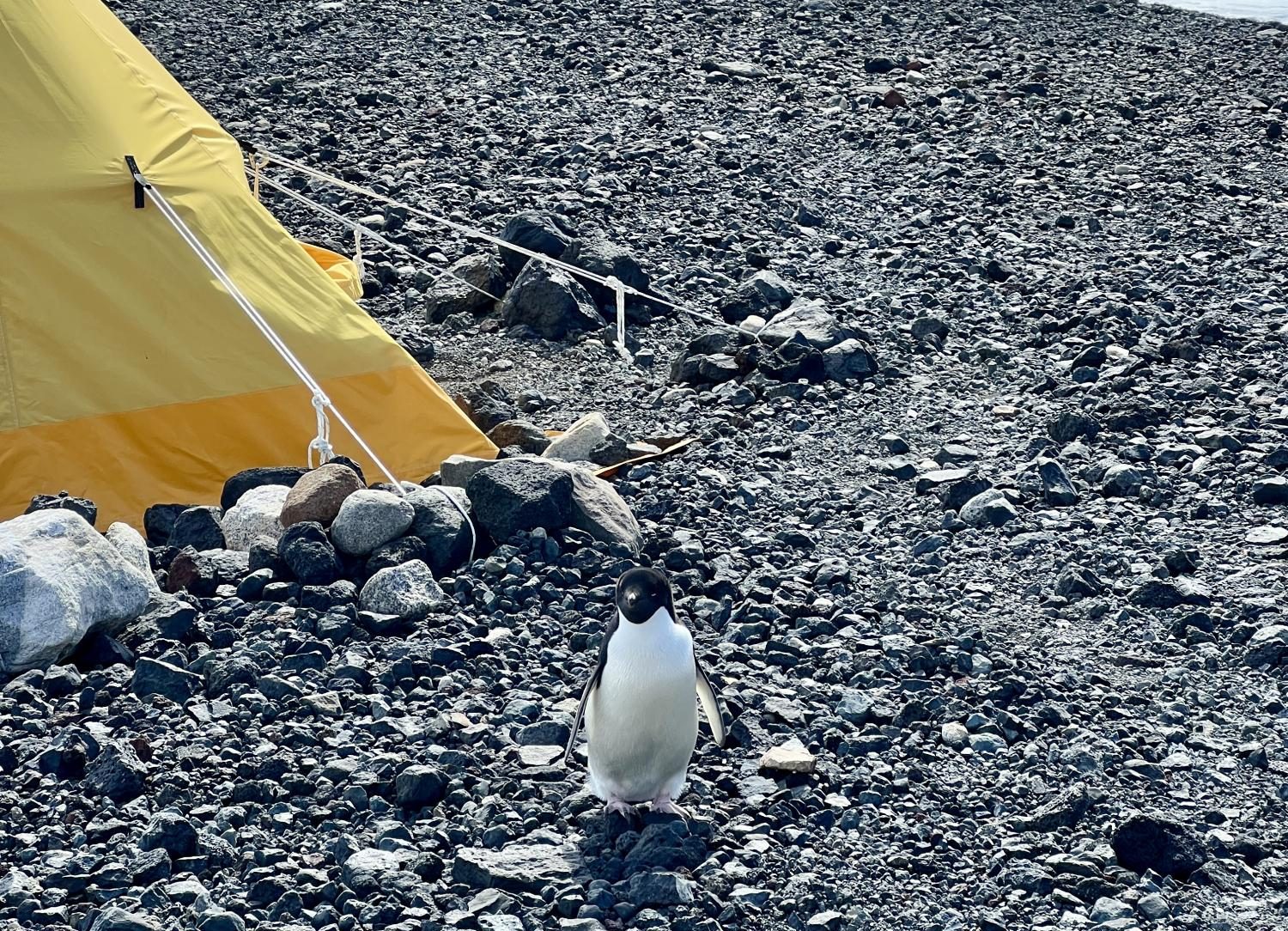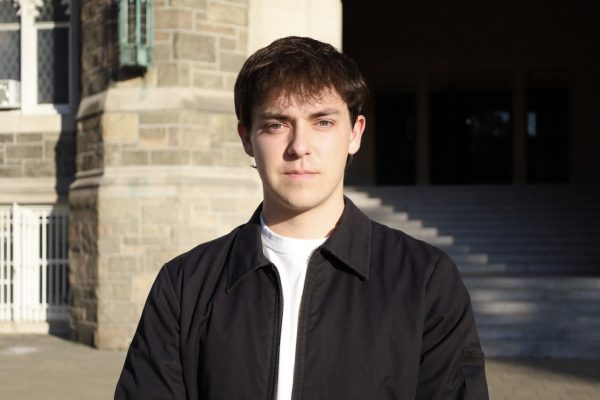When John Fromer, FCRH ’18, chose to study political science at Fordham University, he was motivated by a curiosity about politics and its reach across fields. At the same time, he was also developing skills in carpentry. That unusual combination would eventually take him farther south than most people ever dream of going.
Fromer has spent multiple seasons working as a carpenter at McMurdo Station, the largest United States research hub in Antarctica. His role combines technical expertise with history and a sense of adventure and community that he credits to his education at Fordham.
Foster responded to questions in an email. “My Fordham education fostered the curiosity necessary that motivated me to explore seemingly extreme possibilities,” Fromer said in an email. “My time at Fordham, surrounded by so much history and tradition, made pursuing work in a field that is also deeply connected to its historic roots and tradition important for me.”
Fromer’s fascination with Antarctica began with stories of explorers like Edmund Hillary, Ernest Shackleton and Robert Falcon Scott. He was particularly drawn to the Irish crew members who played pivotal roles on early expeditions. “This led me to consider the possibility that I could find a role working at McMurdo Station in a modern context and sure enough, my resume aligned well with a carpentry position at the station,” he said.
Traveling to the station each season is a complicated process. First, Fromer must fly from New York to Houston, Texas, to Auckland then Christchurch, New Zealand. Upon arrival, he is outfitted with cold-weather gear, including the iconic red Canada Goose parka, before boarding a U.S. Air Force C-17 Globemaster to land on the ice runway near McMurdo.
At the station, carpentry means more than maintenance. “The typical day in the Carpentry Shop could consist of building crates to ship specialized equipment home, station maintenance or working on constructing specific apparatus that was requested by the scientists at the station for their individual research projects,” Fromer said.
The job often takes him far beyond the base. Fromer has traveled by helicopter and small aircraft to remote sites, where he and his team built research camps ahead of scientists’ arrival. They later returned to dismantle the camps once the research was complete.
At Cape Crozier, home to one of the world’s largest Adélie penguin colonies, he helped build a permanent research hut and sometimes received curious visitors. “Now and then a few wander into camp for a visit,” he said.

Some work could feel surreal in such a setting, according to Fromer.
“Another assignment at a remote site in the McMurdo Dry Valleys was to lay new linoleum in the tiny lab structures at the camp,” Fromer said. “This last one seemed kind of funny to me to be in such a middle of nowhere type place installing something as ordinary as linoleum.”
Fromer noted that the environment can be harsh. “The biggest challenge is one that I can’t say is unexpected is the level of coldness,” Fromer said. “It was not uncommon to experience -35 degree ambient temperatures, with wind chills making it feel much colder.”
But the rewards are equally vivid. Fromer remembers standing before the Asgard Mountain Range and first spotting penguins at Cape Royds, where he also entered Shackleton’s preserved hut. “That is a rare experience,” he said.
Life at McMurdo offers more than work. Evenings might be spent at the station’s bars, in the library or in the crafts room, in a routine that Fromer compared to college.
He especially values the friendships he has formed. “We’re all from different parts of the country and some from other parts of the world. We’re often amused by our regional slang,” he said. “Life at McMurdo allows a lot of interaction with staff and scientists from several other countries, like New Zealand and Italy.”
The diversity of his work community impresses him just as much as the natural beauty. “It’s also unusually normal to meet someone working as a janitor or a galley steward who is a Ph.D. or an archaeologist or some equally impressive academic, all drawn to the station because of a shared interest in the continent,” Fromer said. “This coupled with knowing we’re doing important work, makes the experience really intellectually stimulating and rewarding.”
For all Fordham students and alumni considering an unconventional path, Fromer’s journey shows where curiosity and opportunity can lead. Although his education is rooted in the Bronx, Fromer’s influence stretches all the way down to Antarctica.









































































































































































































